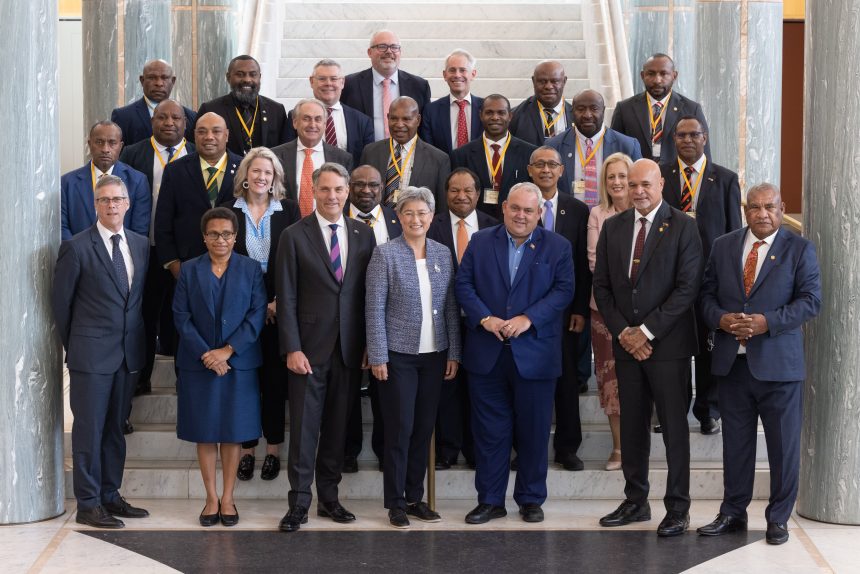A Landmark Pact: The “Pukpuk” Treaty
Australia and Papua New Guinea (PNG) signed a mutual defence treaty on October 6, 2025 — their first formal alliance in over 70 years. The agreement, dubbed the Pukpuk Treaty (meaning crocodile), binds the two neighbours to mutual defence obligations: if either country is attacked, the other is obliged to assist.
According to the Australian government, the treaty will “elevate our relationship to an Alliance.” For PNG, this is its first defence treaty ever.
Key Features & Provisions
- Mutual defence clause: The core commitment is that an “armed attack” on one party would be treated as dangerous to both, triggering a coordinated response.
- Respect for sovereignty: The treaty explicitly states that both nations will uphold sovereignty, independence, and territorial integrity of neighbours in the region.
- Military integration and modernization: The agreement provides for expanded defence cooperation, including joint training, capability development, and consultations on modernization.
- Recruitment pathways: Notably, PNG citizens who are permanent residents living in Australia will be eligible to apply to join the Australian Defence Force from January 1, 2026.
- Non-compromising agreements: Parties agree not to enter into arrangements that might “compromise the implementation” of this treaty — a clause that observers see as aimed at limiting conflicting security agreements with third parties.
Strategic Implications & Regional Context
The treaty comes amid growing strategic competition in the Pacific, especially as Australia seeks to counterbalance Chinese influence in the region.
For Australia, the Pukpuk Treaty is its first new alliance since the ANZUS pact (with the U.S. and New Zealand). Prime Minister of Australia+1 It strengthens Canberra’s role as PNG’s primary defence partner and deepens military ties with its northern neighbour.
For PNG, the treaty offers enhanced security guarantees and access to Australian military training and support. However, PNG leaders emphasize the move is driven by geography, history, and the reality of shared neighbourhoods — not geopolitics directed against any third country.
China has expressed concern, warning against excluding other nations or having clauses that limit PNG’s foreign policy flexibility. PNG’s Prime Minister James Marape responded by reaffirming that the country will maintain relationships with China and others, and that the treaty was not meant as a geopolitical weapon.
Ratification & Next Steps
- The treaty will take effect only after ratification by both countries’ parliaments.
- Australia’s process is expected to be smoother; PNG may see more internal debate over the implications.
- As a first step, PNG citizens already residing in Australia can begin applying to join the Australian Defence Force from January 2026.











